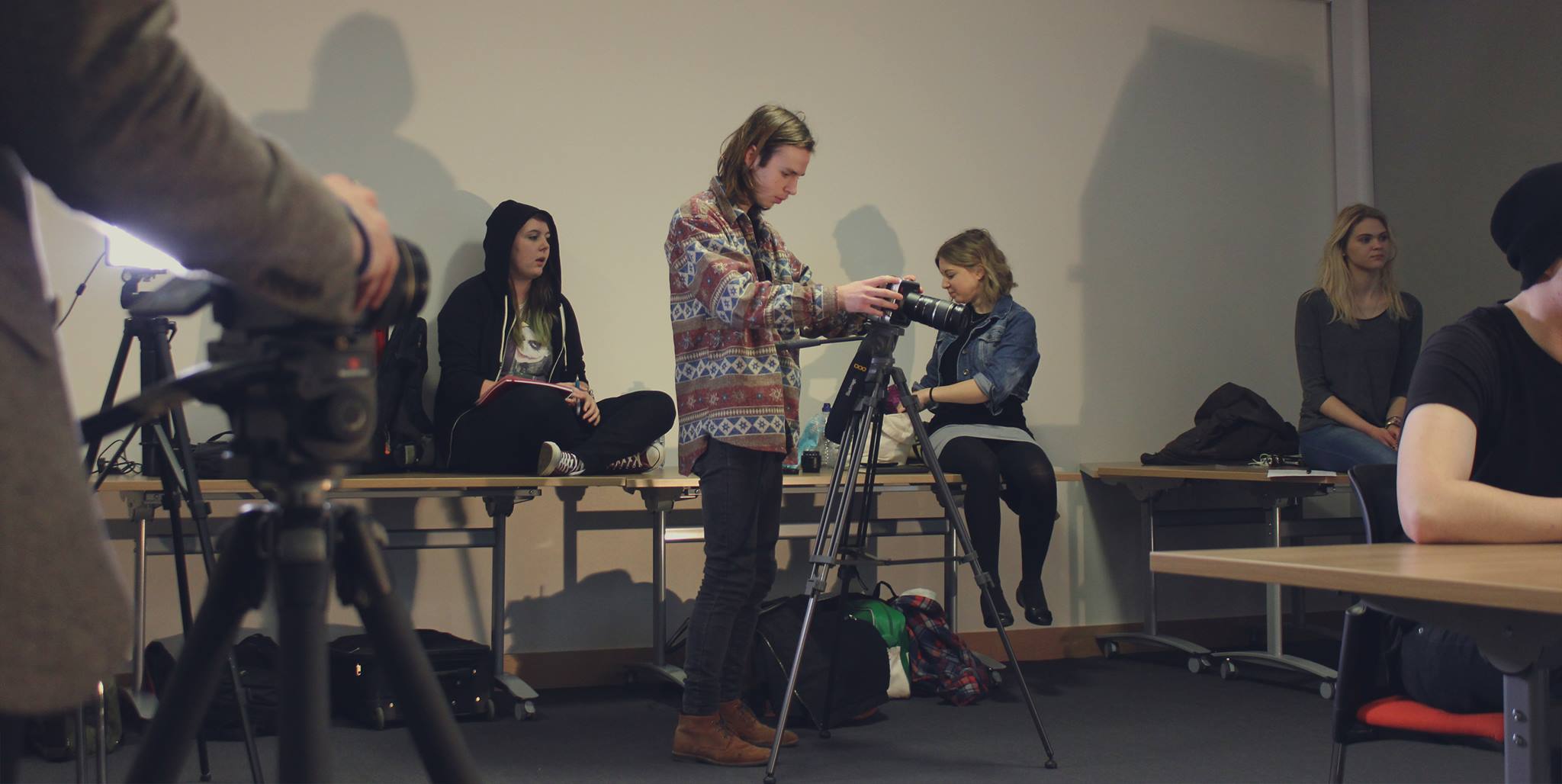The following is a transcript from this weeks tutorial video, for those who may have missed any information:
1) Collaborate, Don’t Dictate
“It’s easy to fall in to the trap of believing everything you say is gospel when you’re director. It can work against you though – to simply assume everyone on set is there just to scratch your creative itch. By collaborating with actors and crew, and encouraging creative input from all involved, you welcome more possibilities, more ideas….and can create something more original as a result. Just because you’re passionate doesn’t mean everyone else will be automatically. It’s important to consider the opinions of others, because frankly, there will always be members of crew who know more than you in a certain field”
2) Staging is Everything
“You’re never really taught how to be a director. Really what it boils down to is how you stage a scene. Where you position your actors, your camera, what you want placed in the frame, how you plan to progress the scene from start to finish – this is what directing really is.”
3) Allow Actors to Improvise
“I learnt early on that no matter how experienced an actor is, allowing them to run wild with a scene and imprint their own personality on a take or two, or in rehearsals, will give you more options in the edit, and usually bring about a new approach that you hadn’t thought of. It allows them to focus less on dialogue and more on the character’s objectives, seeing the scene with fresh eyes, something that would have to be pre-meditated when simply working from script.”
4) Understand Each Role
“In film school you work on each other’s crews to cycle through every role on set and learn from each other. This is incredibly useful. Try to master everything you can, from budgeting to scheduling, camera to sound, lighting, to editing. It will empower you to know what is possible and enable you to make creative decisions when faced with resource constraints. This applies to acting too. Being able to understand the challenges that your talent face means you are all working to make each others jobs easier.”
5) Be Prepared
“Production is the most fun and most integral part of making a film. What you’re not told though is that you should do most of the work before you arrive. Considering staging, writing notes for actors, discussing character, planning the positioning of everything before the day…you’ll save a great deal of time by being prepared, which means you can spend even longer on perfecting each scene on the day.”
6) Never Stop Learning
“Never stop soaking up new information, or trying to improve the skills you do have. If you want to be a director, read books on technique, on directors approaches, about the world at large and put that to use when you make a film. Most importantly, you have to watch films to learn how to make them -but do it the right way.
One of the best ways to watch a film is with the sound off. This is the perfect technique if you want to observe how stories are told visually, and how the camera behaves to provoke this or that. What are smaller characters doing in a scene, what’s been included in the mise-en-scène to give the audience information. This film-viewing approach will make you aware of every camera setup, including angles, shot sizes, and movements. The goal is to deconstruct the film by paying attention to the countless little details that come together to make the film what it is, so you too can make your own work of art.”
7) They Want to be Directed
“There appears to be a myth among amateur filmmakers that directors should tiptoe around their actors and crew. Knowing what you want in terms of performance, camera, production design, and music, doesn’t mean you’ll have complaints from anyone. Quite the opposite. It’s more likely that you’ll get respect and support from cast and crew, for the fact that you’ve expressed exactly what you’re all working toward.”
8) Be Patient
“You’ll learn very quickly that making a film is incredibly time consuming, so you have to really want to make one. There’s a lot of waiting around, frustration over weather conditions, or sound considerations. Sometimes a performance or setup won’t be working, and so you have to take a step back and change your approach…or wait. If you lose your cool, it’ll negatively effect everyone. You have to remain calm and patient, even if you feel like you it’s all falling apart.”
9) Create a Safe Set
“Don’t ever be judgemental. The job of an actor is to open up their inner, most vulnerable selves and bring that out and put it up on the screen. And then do it again and again for multiple takes. So actors need to feel safe and supported. It takes a certain amount of trust and it’s up to you to create. If they trust you as the director, then they will give you gold in terms of their performance. They will make your film. But if they feel unsafe and distrustful of you or your crew, then the performances they give will not be honest and it will show in the final version of your film.”
10) Be an Auteur!
“By all means be influenced by other filmmakers and artists, but think about how you want to tell the story, or what you want to say about the world. A director like David Lynch would shoot a scene completely different to a director like Stephen Spielberg. What’s your style? What’s your voice? How do you want to be remembered through your work?”
If you have any further questions, please don’t hesitate to contact us
Brought to you by:
Michael Henry – Writer / Editor / Director
Louise Bawtree – Producer / Research

